National Extension Programs Policies
The National Extension Programs Policies is a document which contains the Extension works in Brazilian State Institutions of higher education, originated from a discussion promoted in the National Forums of Extension Deans (Fórum de Pró-Reitores de Extensão - FORPROEX). The text is based on the National Plan of University Extension, which seeks to articulate adequately the constitutional spirit of inseparability between Teaching, Research, and Extension in the university environment. The goals, paths, contexts, concepts, principles, directions, resources, are addressed.
National Forum of Deans
The Forum of Deans of Extension of the Brazilian State Institutions of Higher Education (FORPROEX) is an entity that aims to articulate and define the academic extension programs policies. It is committed with social transformation for the full exercise of citizenship and democracy strengthening.
The members of the Forum, with rights of voice and vote, are the Extension Deans and the holders of similar organs of the Brazilian State Higher Education Institutions.
National Extension Plan
The National Extension Plan was created from the discussion promoted in the National Forums of Extension Deans (FORPROEX), by drawing goals, objectives, methods, and evaluation of University Extension.
Guidelines for University Extension Actions
Resolution CNE/CES No. 7/2018 establishes the Guidelines for Extension in Brazilian Higher Education and regulates the provisions of Goal 12.7 of Law No. 13.005/2014, which approves the National Education Plan – PNE 2014-2024.
The structure, conception, and practice of the Extension Guidelines in Higher Education are as follows:
- The dialogical interaction of the academic community with society through the exchange of knowledge, participation, and contact with contemporary complex issues present in the social context;
- The student’s citizenship formation marked and constituted by the experience of their knowledge, which, in an interprofessional and interdisciplinary way, is valued and integrated into the curriculum;
- The production of changes in the higher institution itself and in other sectors of society, from the construction and application of knowledge, as well as by other academic and social activities;
- The articulation between teaching/extension/research, anchored in an unique pedagogical, interdisciplinary, educational, cultural, scientific, and technological policy process






